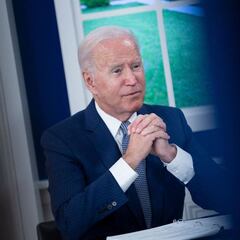FDA authorizes booster shots for the elderly and people at risk. When will I be eligible?
The US FDA has approved booster shots for seniors and immunocompromised people, but many are wondering when they will be available to the general public


On 22 September, the US Food and Drug Administration updated thier "emergency use authorization (EUA) for the Pfizer-BioNTech COVID-19 Vaccine to allow for the use of a single booster dose" for certain populations.
Similar to when vaccines first became available in late 2020, those who face the highest risk from covid-19 will be the first to receive boosters. This first group includes "individuals 65 years of age and older," those between the ages of "18 through 64 years of age at high risk of severe COVID-19 or "whose frequent institutional or occupational exposure to SARS-CoV-2 puts them at high risk of serious complications of COVID-19."
What professions does the update apply to?
Workers who interact with many people or are in contact with vulnerable groups are included in the updated FDA guidance. This includes teachers, retail workers, health care workers, and those who work in prisons or with people experiencing homelessness.
When will other groups be able to get a booster shot?
The FDA has not announced a timeline for when booster shots will be widely available beyond the groups above.
In August, the FDA and CDC projected that booster shots would be available eight months after the first series of either Pfizer & BioNTech or Moderna starting in September. However, last week a key FDA advisory panel voted to approve the use of boosters in high-risk groups.
One of the members, Dr. Michael G. Kurilla, told the New York Times that at this point, “It’s unclear that everyone needs to be boosted, other than a subset of the population that clearly would be at high risk for serious disease." Until more conclusive evidence demonstrates the need for boosters within the greater population, the advisory committee will hold off on approval.
NEW: Dr. Anthony Fauci says "our highest priority ... is getting the unvaccinated vaccinated" on #MTP
— Meet the Press (@MeetThePress) September 19, 2021
Fauci: "The highest priority is not getting boosters. We think it's important to get boosters to people, but the overwhelming highest priority is to vaccinate the unvaccinated." pic.twitter.com/CQwalkxNp2
On Meet the Press this past Sunday, Dr. Anthony Fauci spoke about the possible timeline. In his comments, he said that health authorities in the US need more time to review the data to determine the correct vaccination regime for most of the population.
Related stories
Dr. Fauci also made it clear the decisions on who should receive boosters would not be based on geography. In other words, those who live in areas with low vaccination rates will not be prioritized for a booster because their community could be exercising an increase in transmission.

